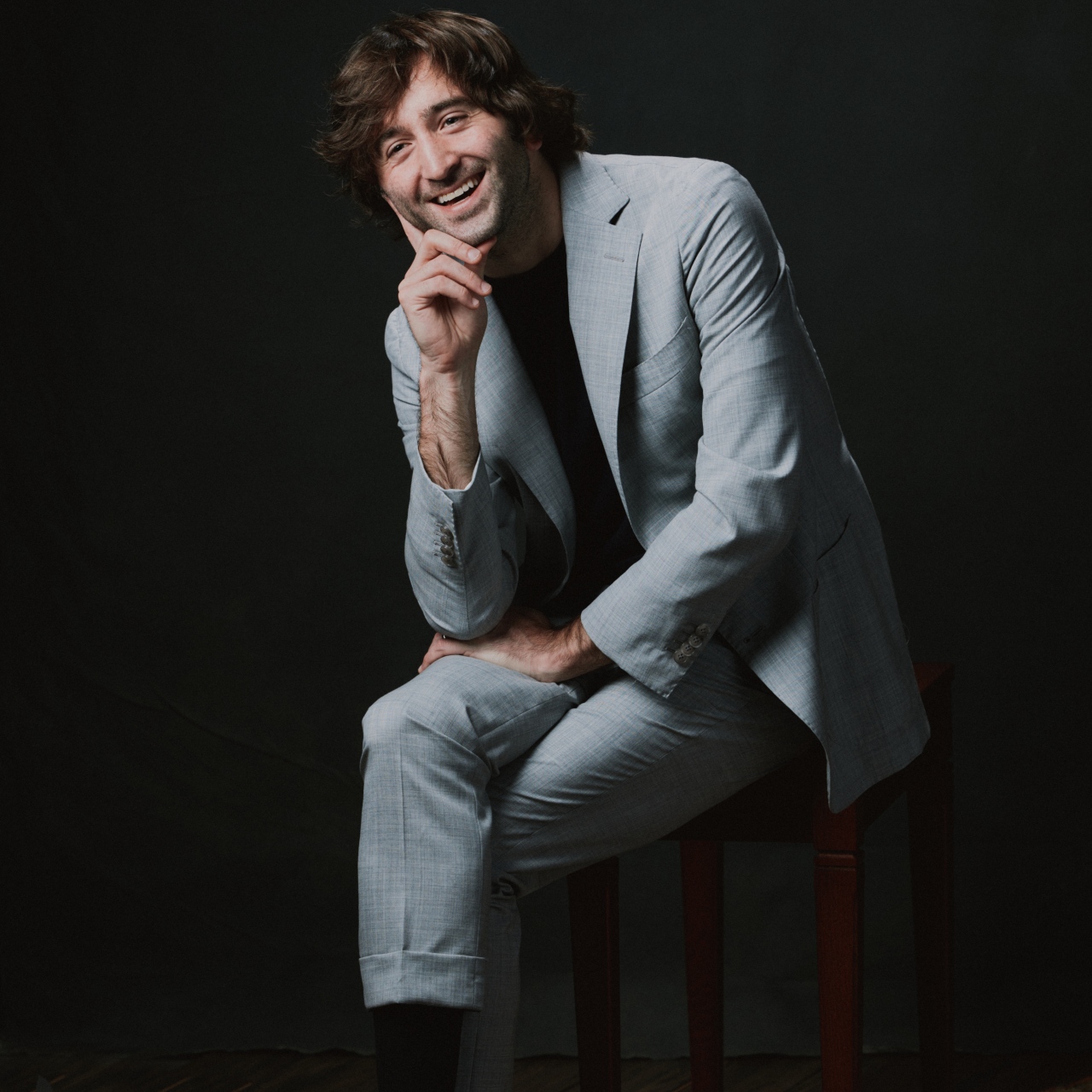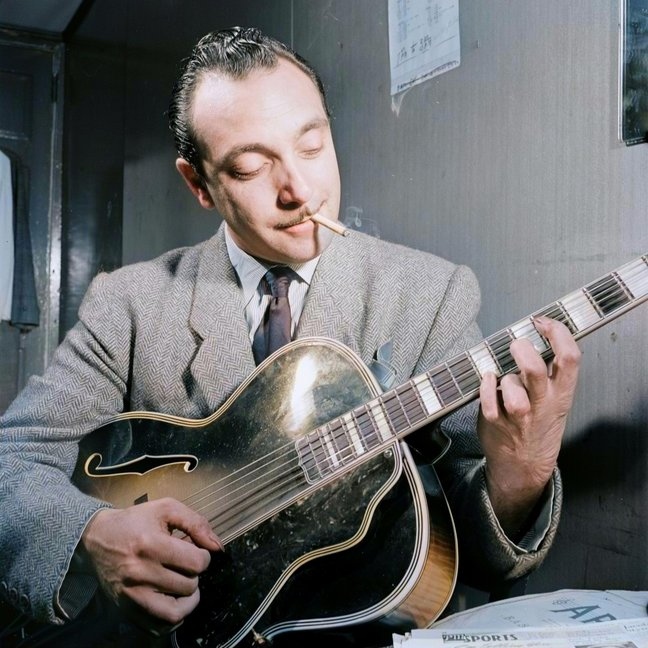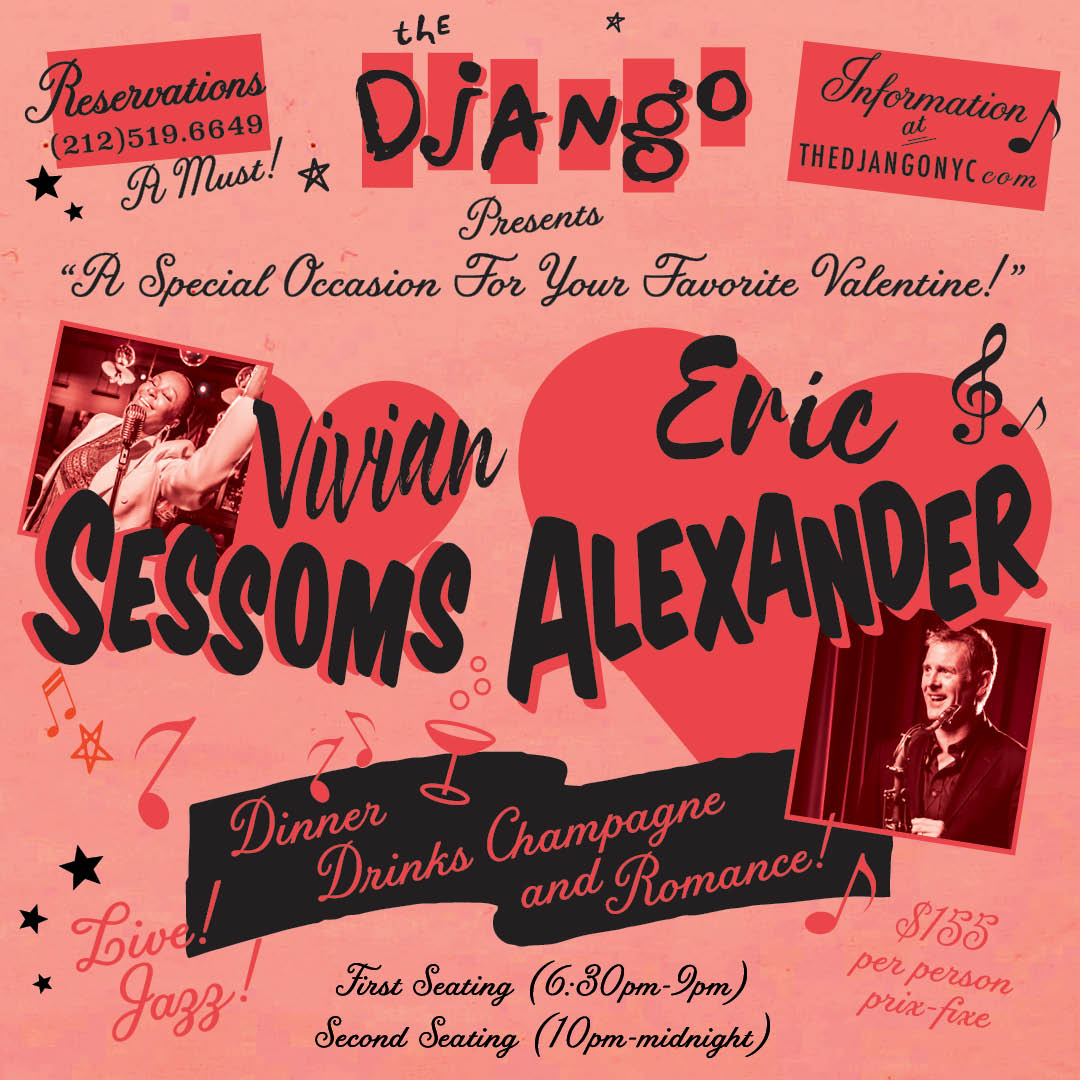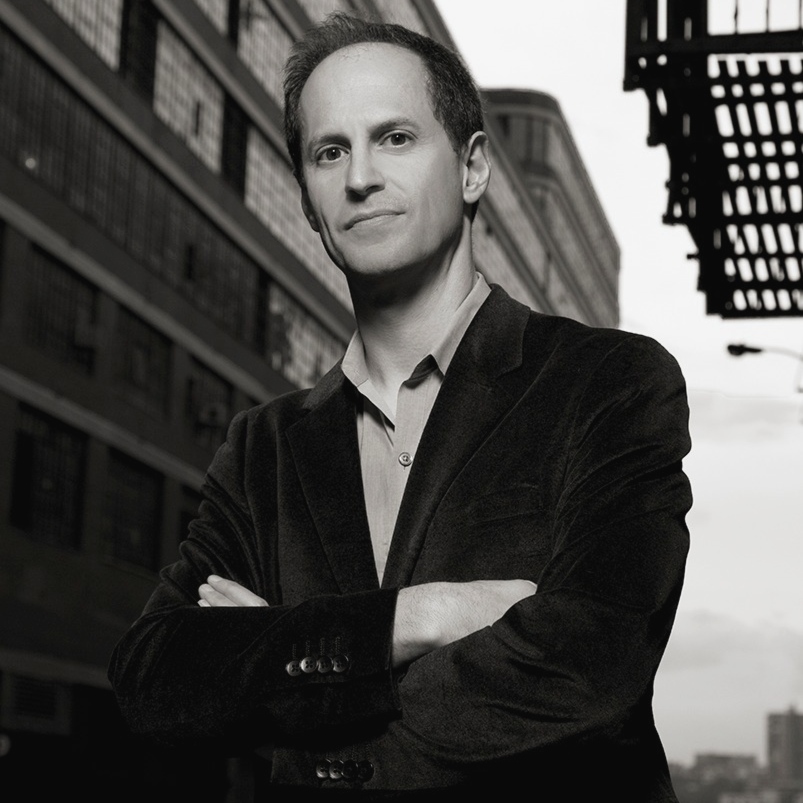Altered State
The music of Joe Alterman and the art of the jazz trio.
05.08.25

Praised by jazz legend Ahmad Jamal as “a very special artist,” Atlanta native Joe Alterman sure knows how to swing. His trio-centric sound pays homage to piano forebears like Red Garland and Bill Evans, while simultaneously carving a musical path of its own. In anticipation of his return to the Django stage on Thursday May 8, Alterman spoke to GrandLife’s Entertainment Director Jon Regen about his burgeoning musical career.
How did you first become exposed to jazz?
When I was about four years old, I asked my parents for piano lessons. I don’t know why – I just did. I took a few lessons, didn’t love them, and wanted to quit. But because I’d already started, and because my parents saw some sort of spark, they wouldn’t let me stop. So from four until about 11 or 12, I studied classical piano…and often got in trouble constantly for changing notes. At that point in my life, I didn’t know there was a kind of music where that might actually be encouraged. My Dad initially introduced me to jazz – not at the concert hall, but rather, at barbecues. I remember that whenever he’d put on Wes Montgomery at cookouts, suddenly everything just felt elevated and better. Even then, I didn’t fully understand what I was hearing, but I knew I wanted to feel more of it. Funny enough, it was bluegrass that really turned me on to playing jazz. Growing up, my Dad and I used to go to bluegrass festivals all around Georgia, and I came to love many traditional American songs. Years later, I started noticing that some of those same tunes would pop up in jazz recordings, played by greats like Oscar Peterson. On those recordings, it wasn’t the solos that grabbed me at first, it was the way these imaginative, soulful musicians interpreted melodies I already knew and loved. That was my way in to jazz.
Did you know right away you’d make a life in music?
Truthfully – no. Not at all. What I did know is that when it came time for college I wanted to go to NYU. It had music, yes—but it also had liberal arts and a world beyond just that one thing. I wasn’t looking for a conservatory experience. I just knew that music was my favorite thing in the world, and I wanted to learn as much about it as I could. Once I got to New York, that love of learning naturally turned into a desire to play. I started wanting gigs – so I did everything I could to make them happen. And slowly but surely, the gigs turned into more gigs… and before I knew it, I was a working musician. It wasn’t some grand plan, and it definitely wasn’t a foregone conclusion. I just followed the music. And little by little, it became my life.
Tell us about some of your early gigs…
I remember probably my first real gig—the first one I got on my own, got paid for, and played regularly. It was at a place on the Upper East Side called La Méditerranée. I played there twice a week for nearly 10 years. The idea wasn’t to command attention—it was to create a vibe. But in doing that, I ended up learning a ton about music and people. For instance, when I first started, I assumed that if I wanted the room to quiet down—to really listen—I needed to play louder. But I learned over time that the opposite is true. If you play more softly, more delicately… they lean in. It’s a strange kind of musical psychology, but it stuck with me. And then there was the table next to the piano. The piano was so close to one particular table that I could always hear every word the diners were saying. One night, I was playing the Gershwin tune “Our Love Is Here to Stay,” and this older couple was sitting at that table. I heard the woman say, “Oh, I love this song.” And her husband said, “I don’t know this one.” She looked at him, shocked—“How do you not know this song? It’s Our Love Is Here to Stay! It’s a classic!” And he just kind of shrugged. “I don’t know it.” What started as a casual comment quickly snowballed. She couldn’t believe he didn’t know the song. He stood his ground. It turned into a full-blown argument—right there next to the piano—culminating in her practically yelling, “I can’t believe I married someone who doesn’t know this song!” And there I was, still playing Our Love Is Here to Stay, watching their marriage teeter on the edge over a Gershwin tune. I kept playing, but I was silently cracking up. Because if their love was here to stay… it was definitely being tested.
How did you decide to make your way to NYC?
Well, back in high school, the music I loved – the kind I really wanted to hear live – wasn’t happening often enough in Atlanta. But in New York? It was everywhere. All the artists I was obsessed with were playing there, all the time. I just knew that’s where I wanted to be. I specifically chose NYU because it offered the best of both worlds – a strong music program, but also a great liberal arts education. I liked the idea of being able to study things outside of music, too. In some ways, I think that made the music feel even more rewarding when I came back to it. It’s like Les McCann told me years later, “You need to go out and live so that you have something to sing about on your instrument.” So that was really the spark. I followed the music – and I was lucky enough that a place like NYU existed right in the heart of the city I dreamed of.
What do you most remember about your time studying music at NYU?
Honestly, I look back on that time as not just important and impressionable – but really special. It was one of those rare seasons in life when my only real responsibility was to learn. And I loved it. What stands out most isn’t just what I learned, but who I learned it from. I was lucky to have some incredible teachers – people who inspired me not only musically, but personally. One of them was Don Friedman. Don taught me plenty about the piano, of course—but he also taught me something deeper: what it means to live a fulfilled life. Growing up in Atlanta, I knew a lot of wealthy people. But I didn’t know a lot of fulfilled people – or at least I didn’t think I did—until I met Don. He wasn’t rich by material standards, but he was clearly one of the happiest, most content people I’d ever known. And that stuck with me. I also remember how surreal it was to be learning jazz history during the day and living it at night. I can’t count how many times I’d spend the morning learning about someone like Cedar Walton, and that same night, I’d be in a club watching Cedar play. Or we’d study Dizzy Gillespie, and that evening, I’d be at a gig talking to James Moody—who played with Dizzy – and he’d ask me what we were learning, then tell me what we were getting right… and what we weren’t. It really felt like being alive at a moment when history wasn’t just something you read about – it was still happening. And somehow, I got to be a part of it.
You’re known for fronting a hard-swinging trio. What is it about the trio format that attracts you? –
Well, to start, I just love listening to piano trios. That’s always been true. But more than anything, what really attracts me to the trio format is my love of melody. When I first got into jazz, it wasn’t the solos that grabbed me – it was the way great pianists interpreted melodies I already knew. That’s still what resonates most with me. I don’t just love improvising. I love playing the melody. I love shaping it, phrasing it, finding new colors in it. And in most other settings – when I’m not leading the band or when I’m not in a trio—I don’t always get that opportunity. Someone else might take the melody, and I become part of the support system. But in a trio, I get to do both – I get to carry the melody and then build a solo that grows naturally out of it. That’s the kind of playing that feels most honest to me. So maybe it’s a little selfish… but it’s also where I feel most connected to the music. And the truth is, my favorite kind of music is piano trio music—so I guess it all works out.
Give us your top three jazz piano trio albums…
The Portfolio of Ahmad Jamal, Oscar Peterson Trio: The Trio Live from Chicago and Les McCann LTD: But Not Really
Favorite pianist (can you name just one)?
There’s a quote I love by Bob Dylan. He said: “If you copy somebody – and there’s nothing wrong with that—the top rule should be to go back and copy the guy that was there first. It’s like all the people who copied me over the years. Too many of them just got me. They didn’t get what I got.” That’s how I feel about piano players. There are so many pianists I admire, but what I’ve noticed is that the ones I love the most—the ones who move me the deepest—all seem to share one thing in common: a deep love for Erroll Garner. So maybe that’s how I’ll answer the question. Erroll Garner is my favorite pianist—not just for what he got, but for what everyone I admire got from him. He’s at the root of the tree.
Like me, you spend your time both playing music and writing about it. What’s most appealing to you about that duality?
What I find most appealing about that duality is how it taps into the one thing I think drives me more than anything else in life: curiosity. For a long time, I thought it was patience or persistence that kept me moving forward. But the more I reflect on it, the more I realize – it’s really just curiosity. Curiosity about the music itself, the stories behind the music, the people who make it, the places it’s taken them, the times it’s carried us through. There’s just so much to wonder about when it comes to music. And whether I’m playing or writing, both are really just ways for me to explore that curiosity. To dig deeper. To learn. And then, to share what I find – just in two different ways.
What can people expect at your upcoming show in May 8 at the Django?
Well, first off – it’s a piano trio show, so you can expect some good old-fashioned piano trio swing. But beyond that, I like to mix things up. You’ll hear some hard-swinging standards, but also a few hidden gems – songs written by the same folks who gave us the classics, just not the ones everyone plays. I love digging into that stuff. We’ll throw in some funk grooves, too, and a few originals of mine along the way. Ramsey Lewis once described my music as “happy serious music” – and that’s always stuck with me. So hopefully, you’ll come out, feel good, smile a little, tap your foot, bounce your shoulders, and leave just a bit lighter than you came in.

You May Also Like
2 Avenue of The Americas
New York City, 10013
The Roxy Hotel → Cellar Level



